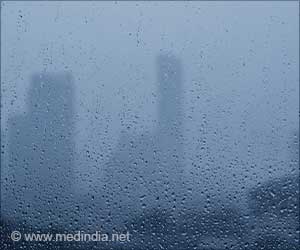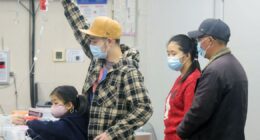The monsoon season brings relief from the scorching heat, but it also poses certain health risks, particularly water-borne diseases and skin ailments. To protect yourself during this season, it is important to take the necessary precautions. In this article, we will explore the top precautions to prevent water-borne diseases, address common skin ailments, and highlight foods to avoid during the monsoon.
‘Stay healthy this monsoon season! Learn how to prevent water-borne diseases, tackle common skin ailments, and avoid high-risk foods. Discover essential precautions for foot care, mosquito protection, and maintaining proper ventilation. #MonsoonHealth #StayHealthy #WellnessTips’
Preventing Water-borne Diseases During Monsoon
-
Safe Drinking Water:
Ensure a safe water supply by drinking boiled or filtered water. If these options are unavailable, opt for commercially packaged water.
-
Proper Hygiene:
Maintain personal hygiene by washing your hands frequently with soap and clean water, especially before handling or consuming food, and after using the restroom.
-
Water Storage:
Store water in clean, covered containers to prevent contamination. Regularly clean and disinfect water storage vessels to ensure the water remains safe.
-
Food Safety:
Pay attention to food hygiene practices, avoiding raw or uncooked food items, especially seafood and vegetables washed with contaminated water.
-
Street Food:
While street food may be tempting, exercise caution as the water used in its preparation may not be safe, increasing the risk of water-borne diseases.
Common Skin Ailments during Monsoon
-
Fungal Infections:
The humid and damp conditions during the monsoon create an ideal environment for fungal growth. Skin fungal infections like ringworm, athlete’s foot, and fungal nail infections are prevalent (1✔ ✔Trusted Source
Monsoon Wellness: Protect Yourself from Water-borne Diseases and Skin AilmentsGo to source
READ RELATED: Screening Tests: 5 Health Tests For Women Suggested By Diabetologist
).
-
Acne and Breakouts:
Increased humidity can lead to excessive oil production, clogged pores, and acne breakouts. Sweat, dirt, and bacteria can exacerbate existing acne or trigger new ones (2✔ ✔Trusted Source
Seasonal aggravation of acne in summers and the effect of temperature and humidity in a study in a tropical settingGo to source
).
-
Eczema and Dermatitis:
People with pre-existing skin conditions like eczema or dermatitis may experience flare-ups during the monsoon season.
-
Prickly Heat:
Prickly heat occurs when sweat gets trapped under the skin due to blocked sweat ducts. It leads to tiny, itchy bumps and a prickling sensation, especially in areas prone to sweating.
-
Tinea Versicolour:
This fungal infection appears as discolored patches on the skin, commonly on the chest, back, and shoulders.
Foods to Avoid during Monsoon
-
Leafy Vegetables:
Leafy greens are prone to contamination during the monsoon. Thoroughly wash and cook them to eliminate dirt, bacteria, and parasites.
-
Street Food:
Exercise caution with street food as the water used in its preparation may not be safe, increasing the risk of contamination.
-
Raw or Cut Fruits:
Wash raw or cut fruits thoroughly before consumption to remove dirt and germs present on the outer skin.
-
Seafood:
Consume seafood with caution during the monsoon, as it tends to spoil quickly in humid weather. Ensure seafood is fresh, properly cooked, and obtained from reliable sources.
-
Dairy Products:
Dairy products can spoil quickly in high humidity. Check the freshness and quality of dairy products before consumption, and avoid consuming products left unrefrigerated for too long.
Additional Precautions for Monsoon
-
Foot Care:
Keep your feet clean and dry to prevent fungal infections. Use antifungal powders or creams, wear clean and dry socks, and opt for open-toe footwear for proper ventilation.
-
Mosquito Protection:
Protect yourself from mosquito-borne diseases like dengue and malaria by using mosquito repellents, wearing long-sleeved clothing, and sleeping under bed nets.
-
Avoid Walking in Stagnant Water:
Stagnant water may contain disease-causing bacteria, parasites, or sharp objects. Avoid walking or wading through stagnant water.
-
Adequate Ventilation:
Ensure proper ventilation in your living spaces to reduce moisture and prevent the growth of molds and fungi. Use exhaust fans, keep windows open, and allow sunlight to enter the rooms.
Taking necessary precautions during the monsoon season is vital to protect yourself from water-borne diseases, skin ailments, and foodborne illnesses. By following these preventive measures, such as ensuring safe drinking water, maintaining hygiene, and avoiding high-risk foods, you can enjoy the monsoon season while keeping yourself healthy. Additionally, taking extra precautions for foot care, mosquito protection, and maintaining proper ventilation will further safeguard your well-being. Stay vigilant, prioritize your health, and make the most of the monsoon season.
References :
- Monsoon Wellness: Protect Yourself from Water-borne Diseases and Skin Ailments – (https://pubmed.ncbi.nlm.nih.gov/32226125/)
- Seasonal aggravation of acne in summers and the effect of temperature and humidity in a study in a tropical setting – (
Source: Medindia









